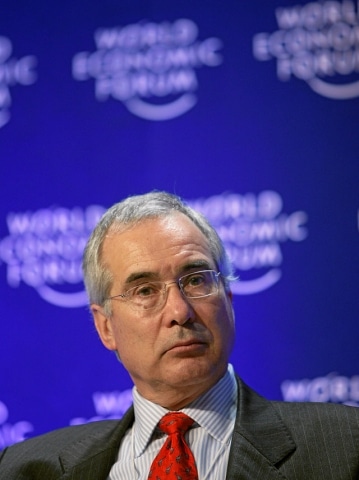Nicholas Stern, one of the world’s most influential economists, has come out with a new report showing that the future costs of climate change have been incredibly underestimated.
The report, Endogenous growth, convexity of damages and climate risk, indicates it is even more important than previously thought that politicians quickly and aggressively stop unchecked climate change caused by man-made carbon dioxide emissions.
Stern, a professor at the Grantham Institute at the London School of Economics, and his co-author Simon Dietz found that the current economic models used to calculate the cost of climate change are vastly inadequate and need to be updated so that proper decisions can be made about risks associated with global warming.
They said that even the Fifth Assessment Report of the Intergovernmental Panel on Climate Change (IPCC) has cited the existing economic models and, as a result, has arrived at severely limited assumptions about the costs of global warming.
“It is extremely important to understand the severe limitations of standard economic models, such as those cited in the IPCC report, which have made assumptions that simply do not reflect current knowledge about climate change and its potential impacts on the economy,” Stern, a former chief economist with the World Bank, said in a media release.
“I hope our paper will prompt other economists to strive for much better models which will help policy-makers and the public to recognize the immensity [of] the potential risks of unmanaged climate change. Models that assume that catastrophic damages are not possible fail to take account of the magnitude of the issues and the implications of the science.”
The media release said Monday that Stern and Dietz modified some key features of the ‘dynamic integrated climate-economy,’ or DICE, model, which was initially devised by William Nordhaus in the 1990s, to take into account the latest findings and some of the uncertainties about the major risks of climate change that are usually omitted.
The new model allows a wider range of values to be considered for climate sensitivity, which is the long-term change in global average temperature that would result from a doubling of the atmospheric concentration of carbon dioxide, the release says.
The new model also includes a broader range of potential climate impacts, because the standard model tends to underestimate the potential economic damage that could be created by climate change, it added.
Dietz said the old economic model has been useful for economists who estimate the potential impacts of climate change but that the new model shows that some major improvements are needed before it can reflect the extent of the risks indicated by the science.
“Our aim was to show how a new version of the model could produce a range of results that are much more representative of the science and economics of climate change, taking into account the uncertainties,” Dietz said.
“The new version of this standard economic model, for instance, suggests that the risks from climate change are bigger than portrayed by previous economic models and therefore strengthens the case for strong cuts in emissions of greenhouse gases.”
Stern and Dietz said their research suggests a global carbon price should range from US $32 to $103/tCO2 by 2015 and rise to between $82 and $260/tCO2 by 2035.
They also found that that living standards could begin to decline later this century unless the growth in annual emissions of greenhouse gases from burning fossil fuels is checked. Their peer-reviewed paper is scheduled for publication in The Economic Journal.
Image Credit: Stern at the 2009 World Economic Forum via Flickr.
Subscribe to our newsletter
Stay up to date with DeSmog news and alerts






